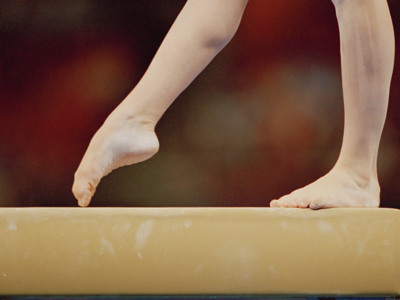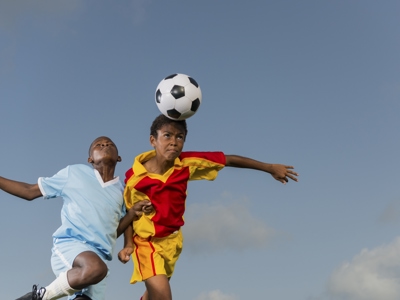
The Whyte Review Final Report – abuse in British Gymnastics
On 16 June, the long-awaited Final Report of the Review by Anne Whyte QC into safeguarding failures in British Gymnastics was published.
Posted on 20 June 2022
My colleague, Dino Nocivelli, wrote about this earlier this month, setting the scene into why this report had to be commissioned by UK Sport and Sport England.
In 2020, numerous gymnasts, including former Olympic and World medallists, spoke out about bullying, abuse and discrimination in the sport – and that their concerns had not been properly investigated by British Gymnastics.
They also described the difficulty they had speaking out because of the “culture of silence”, where athletes related that they did not feel that they could tell anyone because they were taught to prioritise obedience to their coach and getting results; they felt that they would not be believed if they did and – justifiably because of the imbalance of power between an athlete and their coach and club – feared that there would be negative repercussions for their ongoing involvement in Gymnastics.
This was something remarked upon by Anne Whyte when she started her Review. In her Interim Report published in February 2021, it was noted that, in the initial stages of the Review, it became apparent that a significant proportion of the gymnastics community were “somewhat hesitant to share their experiences” and concerned about being identified. The closing date for the Call for Evidence had to be extended. The Whyte Review team published videos to encourage people to come forward and a Privacy Policy and protocol on how the Review would deal with safeguarding issues arising.
In the Interim Report, Anne Whyte QC stated that, “Some of the re-occurring issues emerging from the information I have received are of bullying, belittling, extreme weight management, regular over-stretching, use of excessive physical force, training on serious injuries, gas-lighting, coercive control and a reluctance to raise complaints/lack of opportunity to do so.”
This has been carried through into the Final Report, which is comprehensive and hard-hitting.
The review sets out categories of abusive behaviours that Anne Whyte explains were reported to her. These are truly shocking, including physical punishment and chastisement of athletes administered wholly inappropriately for ‘transgressions’ such as being frightened to attempt a particular skill, needing a toilet break or even being injured; being made to train inappropriately on an injury – and coaches who questioned the veracity of the gymnast’s complaints of pain; overstretching, sometimes to the point of tears and injury; withholding access to food, water and the toilet; emotional abuse, including belittling and ‘gaslighting’ athletes and their parents; and excessively controlling behaviour, including excessive weight management.
There were allegations of sexual abuse reported to the Review, which featured in some 30 submissions, and there have been convictions of gymnastics coaches for sexually abusing children in the UK, as noted in Dino’s blog – and of course the ‘Athlete A’ Netflix documentary that focused on the gymnasts abused by Larry Nassar and which aired in the UK in June 2020 and triggered off the public conversation about abuse in gymnastics.
However, the Whyte Review does not focus on the sexual abuse within the sport – but powerfully exposes other behaviours, which do not necessarily meet the threshold of formal child protection concerns but can nevertheless be highly damaging to athlete wellbeing.
It is clear that these were too prevalent within gymnastics during the 12-year period of review: the Review states that, “Whilst it is very clear that many gymnasts during the period have had nothing but positive experiences of the coaching community and the sport, I have unfortunately concluded that the same cannot be said for significant numbers of the more talented and high achieving gymnasts and for some recreational gymnasts.”
This is undoubtedly an indictment of the overriding culture in British Gymnastics. Having heard over 400 submissions, held over 270 meetings with individuals and organisations and reviewed over 70,000 pages of documentation, the issues the Whyte Review highlights cannot be imputed to poor practice by a small minority of coaches and clubs. Over 90 clubs and 100 coaches were identified in submissions to the Review.
Anne Whyte QC sets out in detail which should be excoriating to British Gymnastics the underlying problems in the sport that need to be addressed, criticising the National Governing Body’s lack of “cultural stewardship”. The detailed recommendations made around such things as education and training, the over-use of volunteers, complaints handling, need for Board level focus on duty of care to athletes, and an independent disclosure service for high performance athletes and their parents, should improve the processes adopted by British Gymnastics and its clubs and help to “re-calibrate” the culture in gymnastics.
However, it is important to recognise that these issues are not unique to the sport of gymnastics.
Anyone who watched the conclusion to the women’s figure skating singles at the 2022 Winter Olympics will have seen the ugly side of ice-skating exposed, with Russian coach Eleri Tutberidze berating her 15-year old prodigy, Kamila Valieva, Valieva’s team mate, Alexandra Trusova being pictured angrily saying that she hated the sport and the new Olympic champion Anna Shcherbakova sitting alone.
There have also been similar abuse scandals in sports and activities as diverse as distance-running and ballet-dancing.
I would argue that an underlying reason for this is the lack of independent oversight of safeguarding and the duty of care to the young participants. Baroness Tanni Grey-Thompson almost five years ago called for a Sports Ombudsman or a Sports Duty of Care Quality Commission. We need an independent body to ensure that safeguarding policies and procedures are athlete-focused and effective, and concerns and complaints are adequately and promptly resolved.
The oversight of safeguarding has to be taken away from those in leadership positions in the sport, where there is a significant risk they will have competing interests to the sport and the athlete, which are in truth irreconcilable. The assessment of safeguarding issues also needs to be handled by people with relevant professional expertise in safeguarding and athlete welfare, rather than those who may be steeped in the historic sports culture of athlete compliance and results being the metric of success.
This body needs to be properly resourced – it cannot be like the Child Protection in Sport Unit, which the Whyte Review indicates failed to provide the necessary external oversight of British Gymnastics, and indeed did more harm than good, as the consistently positive ratings the CPSU gave BG false comfort that there were no significant safeguarding problems; Anne Whyte QC explains that the CPSU did not in reality have any capacity to conduct any sort of audit, instead relying on BG to “mark its own safeguarding homework”.
There needs to be a requirement of mandatory reporting to the new independent regulator so that the prevalence of cases and any repeat patterns or clusters can be identified.
It is also time to bring in registration of coaches. I understand that an argument against compulsory coach licensing is that it will deter volunteer coaches, such as parents, who currently represent a significant subset of the general coaching population. However, this does not apply to the higher levels of coaching qualification which are held by professionals who make their living out of sports coaching. Surely, the introduction of a licensing scheme could be introduced first to cover these individuals and then expanded as the requirement to hold a coach licence becomes standard and accepted practice.
We also should question the practice, which appears to be normalised for performance athletes in such “early participation” sports as gymnastics and figure-skating, of children being removed from schools because of training pressures.
Figure skating has since raised the age limit for elite senior competitions to 17 years old and there are real questions to be asked of sports that enable children under the age of 18 years old to compete as senior competitors. This is especially the case for sports such as Gymnastics that have differential age limits for the women’s sport (currently 16 years old) and for males (18 years old).
I am concerned that this reflects an underlying subjective preference for “aesthetic’ standards based on pre-pubescent female bodies. This will only ensure that the pressure to adopt damaging practices, such as excessive weight management, remains baked into such sports. All of us who enjoy such sports have a responsibility to reflect on what we are seeing, so that we definitively move beyond the era of “Little Girls in Pretty Boxes”*. We need to listen to the stories coming from athletes and former athletes of how they have been affected, sometimes long-term, to ensure that sporting success is not built on physical and emotional traumatisation.
*Little Girls in Pretty Boxes: The Making and Breaking of Elite Gymnasts and Figure Skaters (Joan Ryan) published 1995

Alison Millar
Alison Millar works in the human rights department at Leigh Day, where she is the head of abuse claims



